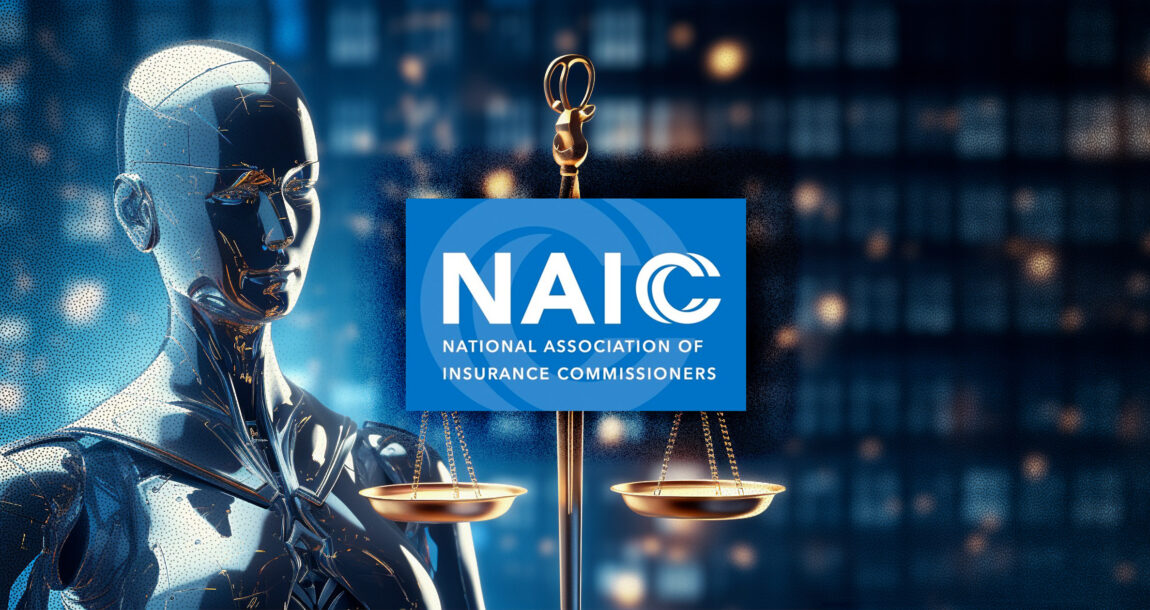State insurance regulators grapple with how and whether to regulate AI

State regulators are studying, surveying and scrutinizing artificial intelligence for any negative impacts on the insurance world.
What they are not doing -- yet -- is issuing any model laws for states to adopt. Regulators came close last month with the release of the Model Bulletin on the Use of Algorithms, Predictive Models, and Artificial Intelligence Systems by Insurers.
And the effort is seemingly not making anyone happy.
The bulletin is not a model law or a regulation. It is intended to "guide insurers to employ AI consistent with existing market conduct, corporate governance, and unfair and deceptive trade practice laws," the law firm Locke Lord explained.
Meanwhile, the National Association of Insurance Commissioners met last week in Seattle. AI featured prominently in several different working group discussions. Regulators released a new batch of AI survey data, with 70% of the reporting homeowners' insurers indicated that they “currently use, plan to use, or plan to explore using” AI.
Insurers are intrigued with the many uses of AI in all aspects of operations. But regulators are struggling with how to regulate the sweeping technology.
AI principles adopted early
In August 2020, the NAIC adopted guiding principles on artificial intelligence.
The NAIC guiding principles are based on the Organization for Economic Co-operation and Development’s AI principles that have been adopted by 42 countries, including the United States.
After robust discussions, state insurance regulators added a principle encouraging industry participants to take proactive steps to avoid proxy discrimination against protected classes when using AI platforms.
There was hope that the NAIC would use the guiding principles as a starting point for strong AI regulation, several speakers said last week during an Innovation, Cybersecurity, and Technology Committee meeting.
Peter Kochenburger is a visiting professor of law at Southern University Law Center. He described the AI principles as "a far-reaching and frankly, exciting document" meant to lay out the framework for further NAIC work would proceed in various committees. That promise is "largely unfulfilled" by the new model bulletin, he added.
"The document does, frankly, very little other than to flesh out and specify what is already in the principles and misses opportunities to start to set, not simply expectations, but guidance and documentation of what insurers need to do," Kochenburger said.
He further criticized the document for soft language in important areas. Consumer advocates are concerned by the potential for rampant "proxy discrimination" with AI-fueled use of big data.
George Floyd was murdered by Minneapolis police in May 2020 and the NAIC adopted the AI principles in August 2020, noted Michael DeLong, research and advocacy associate with the Consumer Federation of America. The opportunity existed to strengthen the AI principles and build off that foundation, he said.
"This draft doesn't respond to the challenges and promises made three years ago," he said. "It's not principles-based but a prescriptive governance approach. It doesn't expand on the AI principles or reflect any specific guidance to any ICU committees and working groups.
"The draft tells insurers what they already know" AI applications must comply with the law and insurers should have oversight over the AI applications."
Industry not thrilled either
Dave Snyder is vice president for the American Property Casualty Insurance Association. He expressed concerns that the AI policy could evolve to become burdensome to insurers and lobbied for a final bulletin "limited in scope."
"The bulletin appears to sweep and operations and data that can be and are adequately regulated without more than being needed," Snyder said.
Adding too many requirements, regarding oversight of third-party vendors, for example, could lead to "unproductive burdens that ultimately harm, not help, the public in terms of increased costs, less-than-the-best service and less technology and information that could help prevent and manage loss," he added.
The NAIC is accepting written comments on the draft bulletin through Sept. 5.
Correction: A previous version of this story incorrectly stated when George Floyd was murdered.
Senior Editor John Hilton covered business and other beats in more than 20 years of daily journalism. John may be reached at [email protected]. Follow him on Twitter @INNJohnH.
© Entire contents copyright 2023 by InsuranceNewsNet.com Inc. All rights reserved. No part of this article may be reprinted without the expressed written consent from InsuranceNewsNet.com.
InsuranceNewsNet Senior Editor John Hilton has covered business and other beats in more than 20 years of daily journalism. John may be reached at [email protected]. Follow him on Twitter @INNJohnH.






Succession planning the family way
Tech driving accelerated claims settlements as hurricane season is here
Advisor News
- NAIFA: Financial professionals are essential to the success of Trump Accounts
- Changes, personalization impacting retirement plans for 2026
- Study asks: How do different generations approach retirement?
- LTC: A critical component of retirement planning
- Middle-class households face worsening cost pressures
More Advisor NewsAnnuity News
- Trademark Application for “INSPIRING YOUR FINANCIAL FUTURE” Filed by Great-West Life & Annuity Insurance Company: Great-West Life & Annuity Insurance Company
- Jackson Financial ramps up reinsurance strategy to grow annuity sales
- Insurer to cut dozens of jobs after making splashy CT relocation
- AM Best Comments on Credit Ratings of Teachers Insurance and Annuity Association of America Following Agreement to Acquire Schroders, plc.
- Crypto meets annuities: what to know about bitcoin-linked FIAs
More Annuity NewsHealth/Employee Benefits News
- $2.67B settlement payout: Blue Cross Blue Shield customers to receive compensation
- Sen. Bernie Moreno has claimed the ACA didn’t save money. But is that true?
- State AG improves access to care for EmblemHealth members
- Arizona ACA enrollment plummets by 66,000 as premium tax credits expire
- HOW A STRONG HEALTH PLAN CAN LEAD TO HIGHER EMPLOYEE RETENTION
More Health/Employee Benefits NewsLife Insurance News